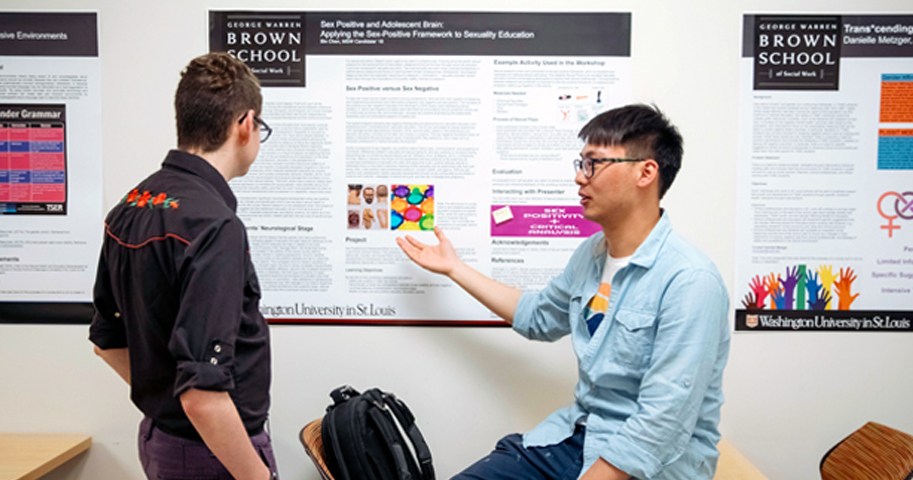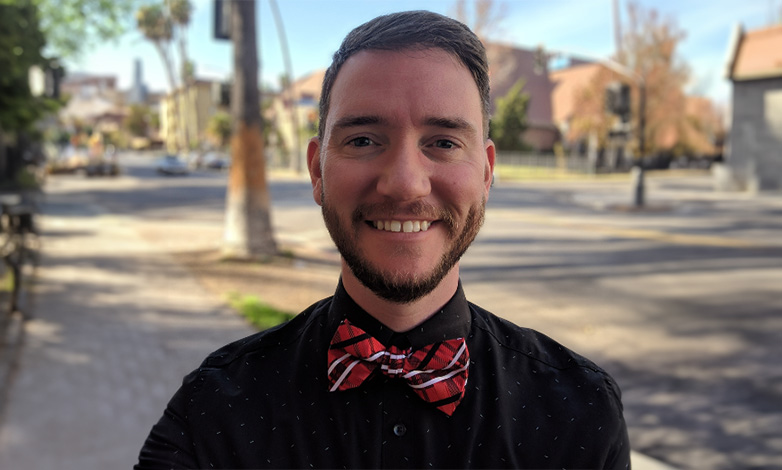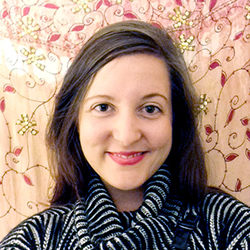Sexual Health and Education Specialization
This specialization prepares students to view and engage with sexual health and education as a critical component to individual, family and community wellness.
Within the specialization, students study sexuality as central to human development across the life course, encompassing sexual expression, gender identities and roles, sexual diversities, pleasure, intimacy, reproduction and sexual safety. Coursework enables students to apply this context to designing programming, interventions and advocacy efforts for sexual health and wellness.
Students learn evidence-based interventions that can bolster awareness of and resistance to social injustice, foster sexual and political self-efficacy, and shift communities toward greater appreciation for diversity, democratic processes, and universal flourishing.
The specialization provides knowledge and skills for critical and holistic social work practice that recognizes links between sexual and gender oppression and social and health disparities. In combination with a chosen concentration, the specialization prepares graduates for careers as sexuality educators, advocates, policymakers, program administrators and therapists. Coursework prepares students to fulfill Core Knowledge Area requirements for certification as Sexuality Educators.

Career Paths
Graduates may pursue positions such as:
- Community Organizer or Lobbyist
- Program Manager
- Sex Therapist
- Sexualities and Disabilities Educator
- University Student Health Services Advocate
Specialization Requirements: 9 Credits
- Sex, Society and Social Work: Issues and Interventions (3 credits)
- Two of the following courses: (6 credits)
- Sexual Health Across the Life Course (3 credits)
- Designing Sexual Health Education Curriculum (3 credits)
- Media Methods for Disseminating Sexual Health Education (3 credits)
- Regulating Sex: Social Work Perspectives (3 credits)
Practicum
The Sexual Health and Education specialization requires 120 hours of related tasks during the concentration practicum. Sample practicum sites include:
- Habif Student Health Center at WashU
- Healing Action Network, Inc.
- Planned Parenthood of St. Louis
- Safe Connections
- The Spot
- WashU School of Medicine – Child & Adolescent Psychiatry Clinic
Additional Resources
The Brown School’s Professional Development department is an AASECT-approved organizational provider of Continuing Education credits. This department offers a variety of Intensive Training Institutes and workshops, which students can pursue for a nominal fee.
Specialization Chair

Josh Rusow’s (he/him) research primarily focuses on the health and wellbeing of sexual and gender minority youth and young adults—understanding how experiences of stigma and discrimination are associated with relationships, behavior, and mental, physical, and sexual health. His doctoral research highlighted the occurrence of teen dating violence and sexual assault among sexual minority adolescents in different contexts throughout the United States.


“The courses I took deepened my understanding of how sexual health is relevant to many disciplines—sociology, public health, social work, psychology and more. The transdisciplinary nature of this specialization was especially appealing, because it allowed me to pursue the intersection of my primary passions: violence prevention and healthy relationships.”
Zoe Whaley, MSW ’14
Wellness & Health Promotion Coordinator for Violence Prevention and Sexual Wellness, San Jose State University